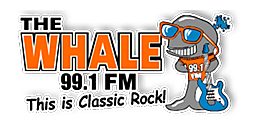
New York State Law Now Bans Certain Types Of Laundry Detergent
Your favorite laundry detergent could be harder to find on New York store shelves thanks to a law that went into effect, making several popular laundry detergents illegal to sell in New York.

Many popular cleaning, personal care, and cosmetic products contain potentially cancer-causing chemicals and the New York State Department of Conservation established a legal limit on the amount of these chemicals that can be found in such products.
During the manufacturing of cleaners and chemicals, a compound called 1,4-Dioxane is created, and laundry detergents, on average, have the highest concentration of this compound.
The law, which went into effect on January 1, 2023, lowers the maximum allowable concentration of 2 parts per million of 1,4-Dioxane for household cleaning and personal care products, down to 1 part per million.
The tricky part is that 1,4-Dioxane doesn’t appear on product ingredient lists, it can only be found out by testing in a laboratory. The website Ingredients Matter sent several different types of laundry detergent to an independent lab to be tested for 1, 4- Dioxane. The lab tests discovered that several of the most popular brands of laundry detergent contained illegal concentrations of 1,4- Dioxane.
In a press release, DEC Commissioner Basil Seggos said,
“DEC prioritizes the health and well-being of New Yorkers and our environment, and the implementation of new laws for chemicals in everyday household products is part of our state’s ongoing commitment to protect communities.”
So long as manufacturers are working to lower the levels of 1,4-Dioxane in their products and show proof of doing so, they can apply for a one-year waiver from compliance.
Read More! NY's 12 Smallest Counties and Why You Should Visit Them
Gallery Credit: Chuck D'Imperio
Amazing! These 35 Upstate New York Businesses Have Been Around for 100 Years....and a Whole Lot More!
Gallery Credit: Chuck D'Imperio
13 Famous Upstate NY Homes You've Probably Never Heard Of
Gallery Credit: Chuck D'Imperio


